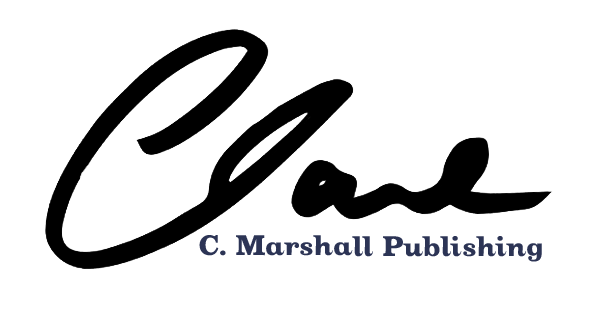So maybe you're like me. You're a writer dutifully working away on the novel of your dreams, when suddenly...
A new idea pops into your head.
Like, a really, really good idea.
The BEST idea you've EVER had.
Or is it?
You abandon your current WIP and chase the new idea, until somehow, it loses its shine.
But don't worry. Because a new plot bunny has just hopped onto the scene, and boy oh boy, does it look like a shiny prize!!
Do you relate to the above?
If so, you might be suffering experiencing a little something called shiny object syndrome.
Today, we're going to do a deep dive into what shiny object syndrome is, how to know if you have it, and actions you can take if you start feeling its alluring pull—so you can get back on track with your current writing (or creative) goals!
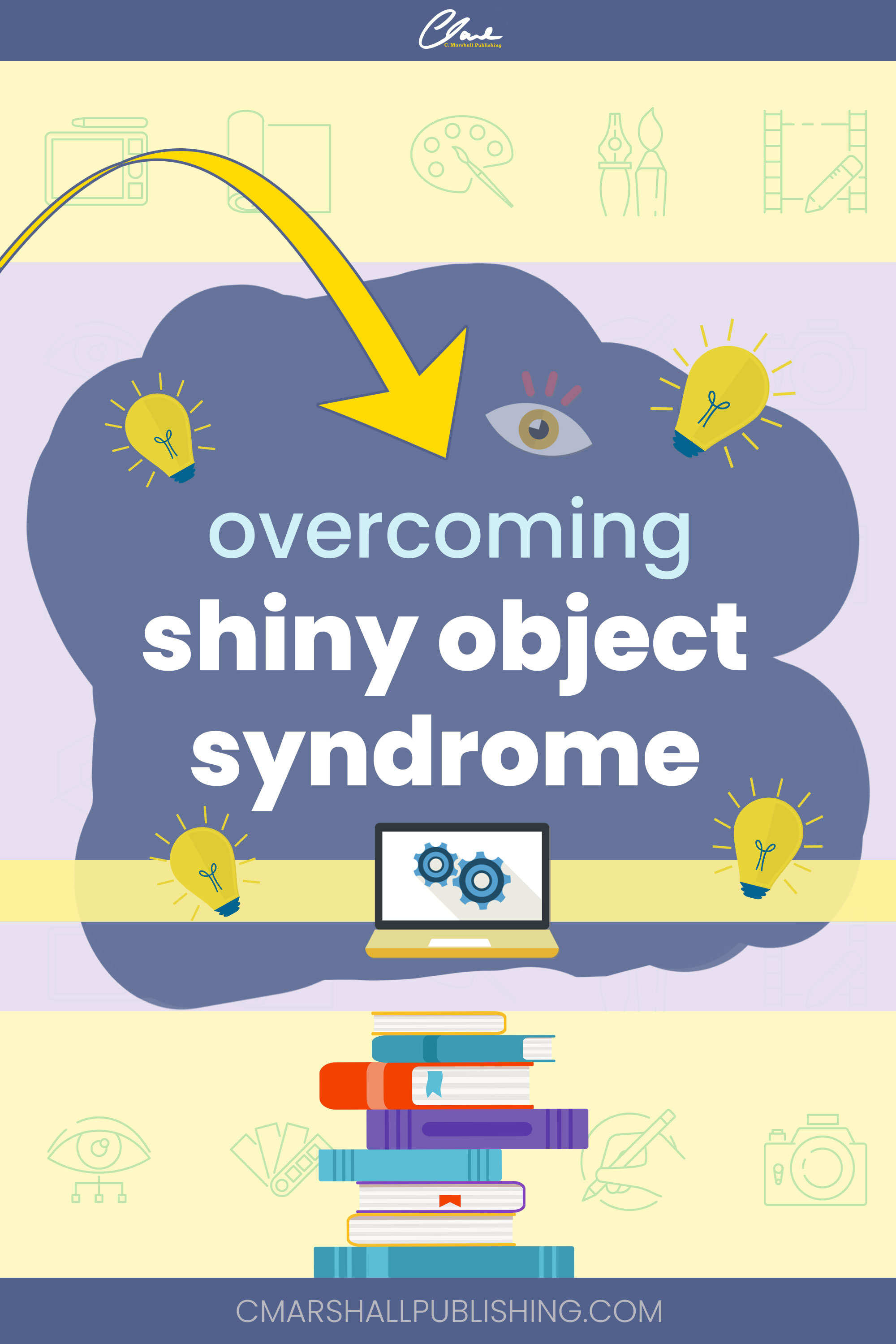
What is Shiny Object Syndrome?
The term shiny object syndrome refers to the tendency to become easily distracted by new, exciting ideas or opportunities. It's used in various contexts, including personal development, business, and marketing. I attempted to find the earliest use for shiny object syndrome, but it was pretty much impossible—if you have any leads, let me know!
Really important: shiny object syndrome isn't a medical condition or diagnosis recognized by professional organizations. It's a pop-cultural, colloquial term only!
How do I know if I have Shiny Object Syndrome?
- Distracted by other, "better" creative ideas
- Worried that the other "better" idea is truly better than the current creative project
- Afraid of "missing out" on the "better" idea if it isn't chased
This isn't an exhaustive "symptom" list (and remember, shiny object syndrome isn't a REAL syndrome). But I think you get the idea: if you're enamored with an idea you can't seem to shake while working on other projects, you probably have it!
If you're new here...
Hey there! Welcome! My name is Clare, I’m the author-publisher behind the young adult science fiction & fantasy publisher, Faery Ink Press.
Each month I blog about a specific behind-the-scenes project or campaign I carry out on my very real publishing company—and share all the messy feelings and results with you, the creative reader.
My experience with Shiny Object Syndrome
I don't think I heard the term shiny object syndrome until I started hanging out with other writers. We also call enticing, distracting ideas "plot bunnies"—pesky creatures that bounce around our minds, demanding our attention as we work on a different project. This usually refers to a different book idea altogether, though I have experience with "plot bunnies" and "shiny object syndrome" in all aspects of my work.
You name it, ideas for marketing campaigns, computer and card games, mobile apps, revenue streams, movie scripts, plays, and of course novels—I've never had trouble coming up with ideas, regardless of the circumstance. So I have experience saying "yes" to an idea if it's worth it, and cataloguing it for later if it's not.
For example, I started a YouTube channel last year. Yay me, right? I'd always wanted to start one and I love every aspect of creating for the platform. But before that, I was dedicated to podcasting and specifically my fantasy serial podcast Wingtorn.
When I got sucked into YouTube, there was no hope for me. I was head over heels. It also started to occupy that part of my time I dedicated to podcasting. I still love podcasting and I plan to return to it soon.
But we only have so much time. When we dedicate ourselves to a creative work and we continually become distracted by other "better" ideas—ideas so enticing that we feel we HAVE to explore them—we're in danger of never completing the work that means so much to us.
When an idea takes hold, I have to determine whether it's worth my time or if it's a true distraction. Here's how I manage shiny object syndrome; hopefully you find these strategies useful.
How to deal with Shiny Object Syndrome (as a writer)
1. Keep reminders of your why. Everywhere.
It can be easy to lose sight of WHY you're working on something, especially if it takes months to complete—whether it's writing a novel or planning a Kickstarter or creating a podcast.
I find it helpful to write bullet points of why a particular project is important to my larger goals or why it's emotionally vital for me to complete.
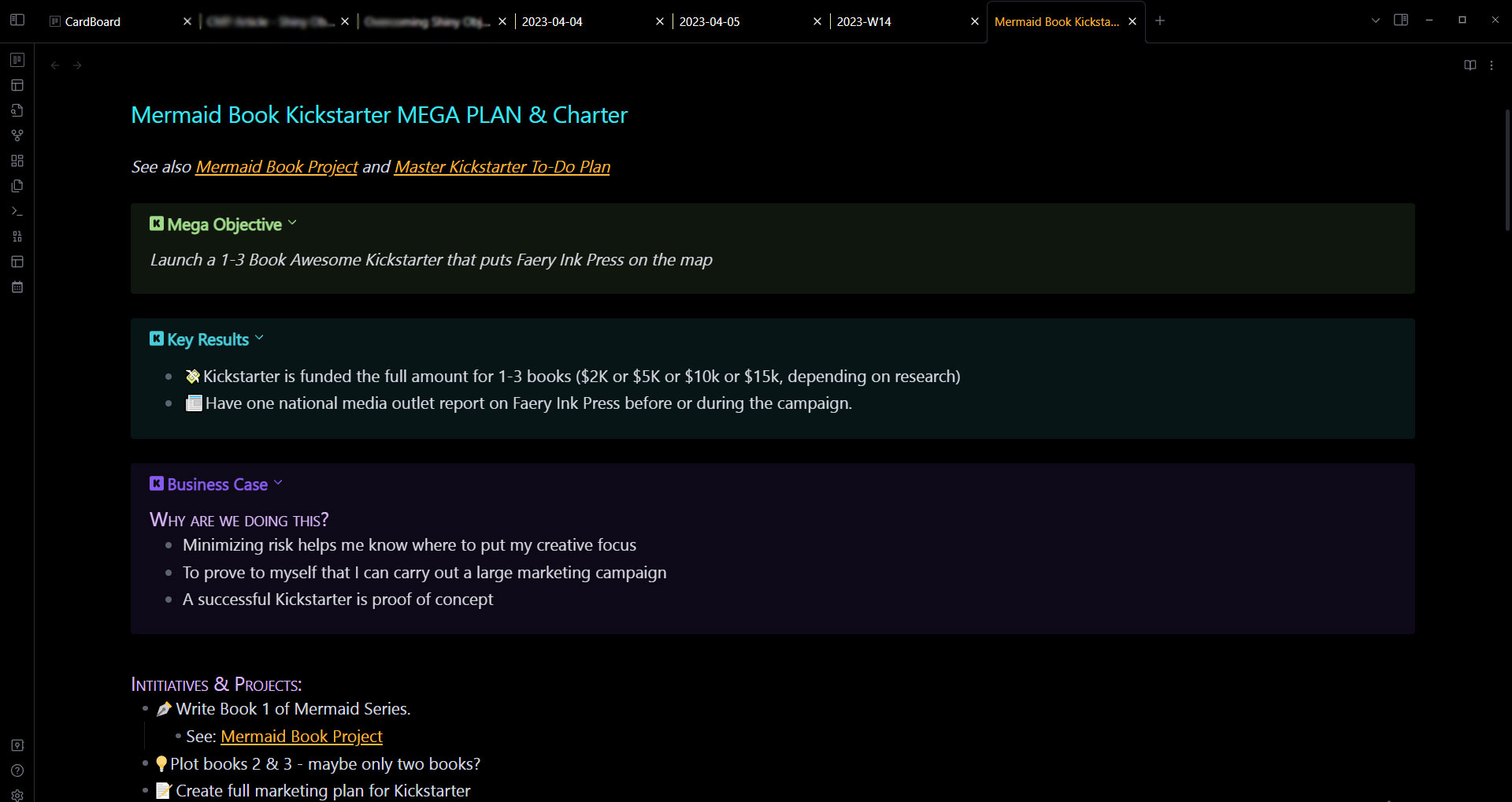
In my Obsidian MD vault project plan note, I use the "business case" section to keep track of my whys.
For example, I keep the "why" of a project at the top of my project document (a note in my ObsidianMD vault).
I also keep a separate note of my core values, to motivate me when I'm feeling down. I'll even insert bullet points into my task list if the task is especially annoying and I need to remember why it's worth doing.
2. Connect with your why—often.
It's one thing to spend time figuring out your "why" and putting it everywhere, but if you never look at it again...why did you spend time writing it down in the first place?
This is where weekly and monthly reviews come into play.
I highly suggest getting into the habit of having a half-hour 'meeting' with yourself every week on Sunday (or whenever your week ends!) to check in with your various goals and projects. I know, such a nerdy productivity thing to do, right? Surely you'd never forget or lose inspiration on your DREAM.
But it's easy to disconnect with your why in midst of everyday minutiae.
By reminding yourself of why your dream project is important to you—whether there's a reward waiting for you at the end or there's an internal gratification to be gained by completing the work—you'll feel reinvigorated to continue.
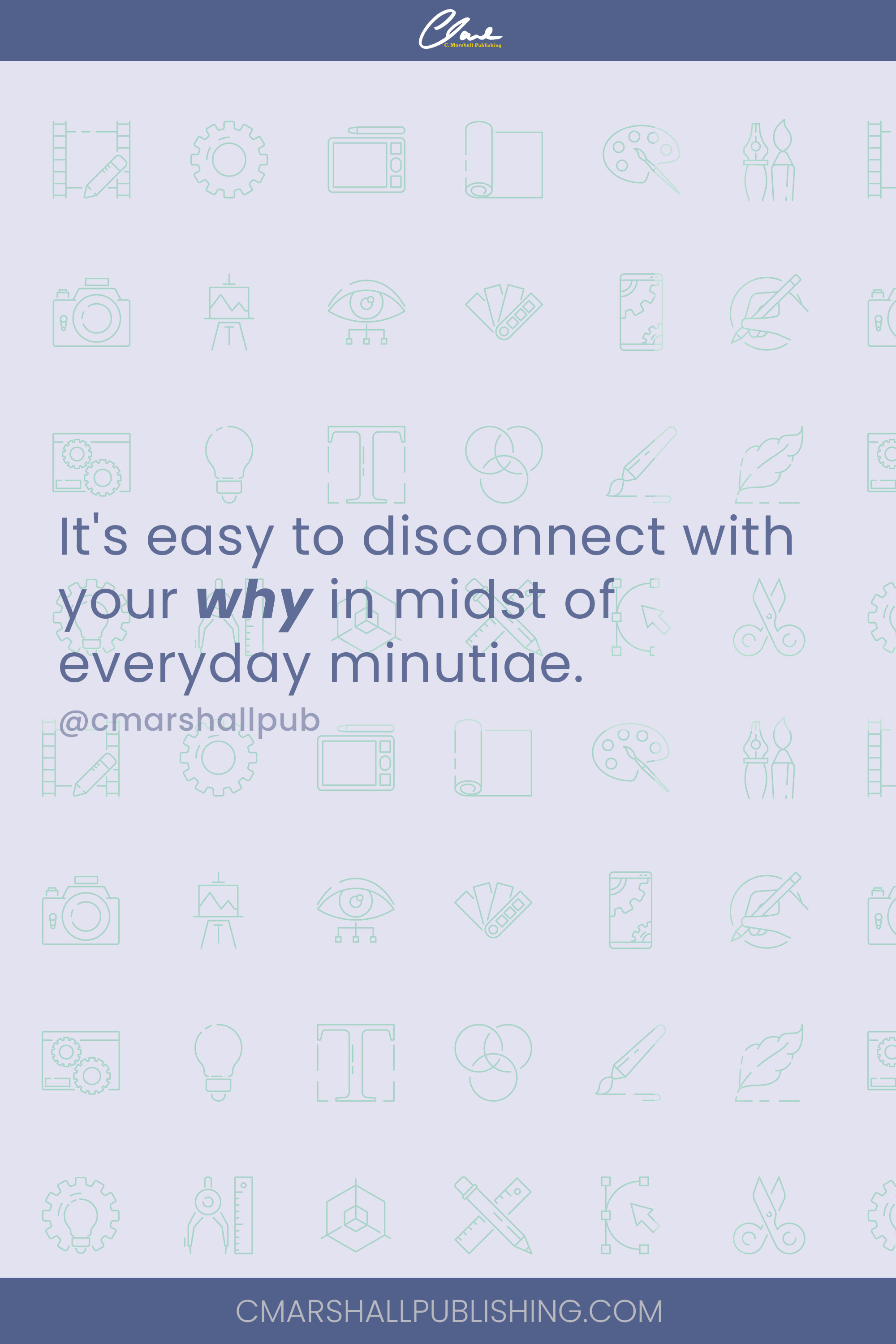
3. Sleep on it.
If it's a good idea today, it's a good idea tomorrow.
Giving the idea twenty-four hours to percolate allows you distance and perspective. Even the strongest ideas lose a little of their shine a day later.
When it comes to story or character ideas, make sure you have a system for recording stray ideas so you don't lose them.
4. Find an idea, pick it up, then all day you'll have a collection of...good...(?) ideas.
My idea collection system used to be terrible. Now it's much better (a more in-depth story for a different time).
Essentially, it's this: when I'm working away and a shiny new idea pops into existence, I HAVE to write it down. Even if I'm on the go, I'll grab my phone and type it awkwardly into my Keep app.
Have a scratch pad (digital or physical) for ideas so you can write them down as they come. That's why I LOVE using ObsidianMD. I can organize and connect all my stray ideas. At the end of the week, I collect them into a different note where I can say, "Yes, this could be worth exploring" or "Wow, this was a silly fantasy, what was I thinking?"
You'll also be surprised by the number of times you have the SAME idea. I cleared out my Keep notes a while back and I wrote down an idea for a game...three times...months apart. If your mind returns to the same well, maybe there's something there to explore.
5. Follow the white rabbit. Allow the idea to take hold.
Wait, wait Clare, I thought we were trying to AVOID ideas that distract us...right?
Well, yes. Ideally. But we also don't live in the ideal world. And sometimes, white rabbits lead us to fantastical places.
Sometimes you need to let the idea run its course, especially if it's a wild one. Set aside time to see where the new idea takes you. If it's not feasible (at least in my experience), the idea will tire itself out and leave me alone. And, if I've scheduled time to explore the idea and it proves unworthy, well, I haven't really wasted my time. I've proven it's not for me.
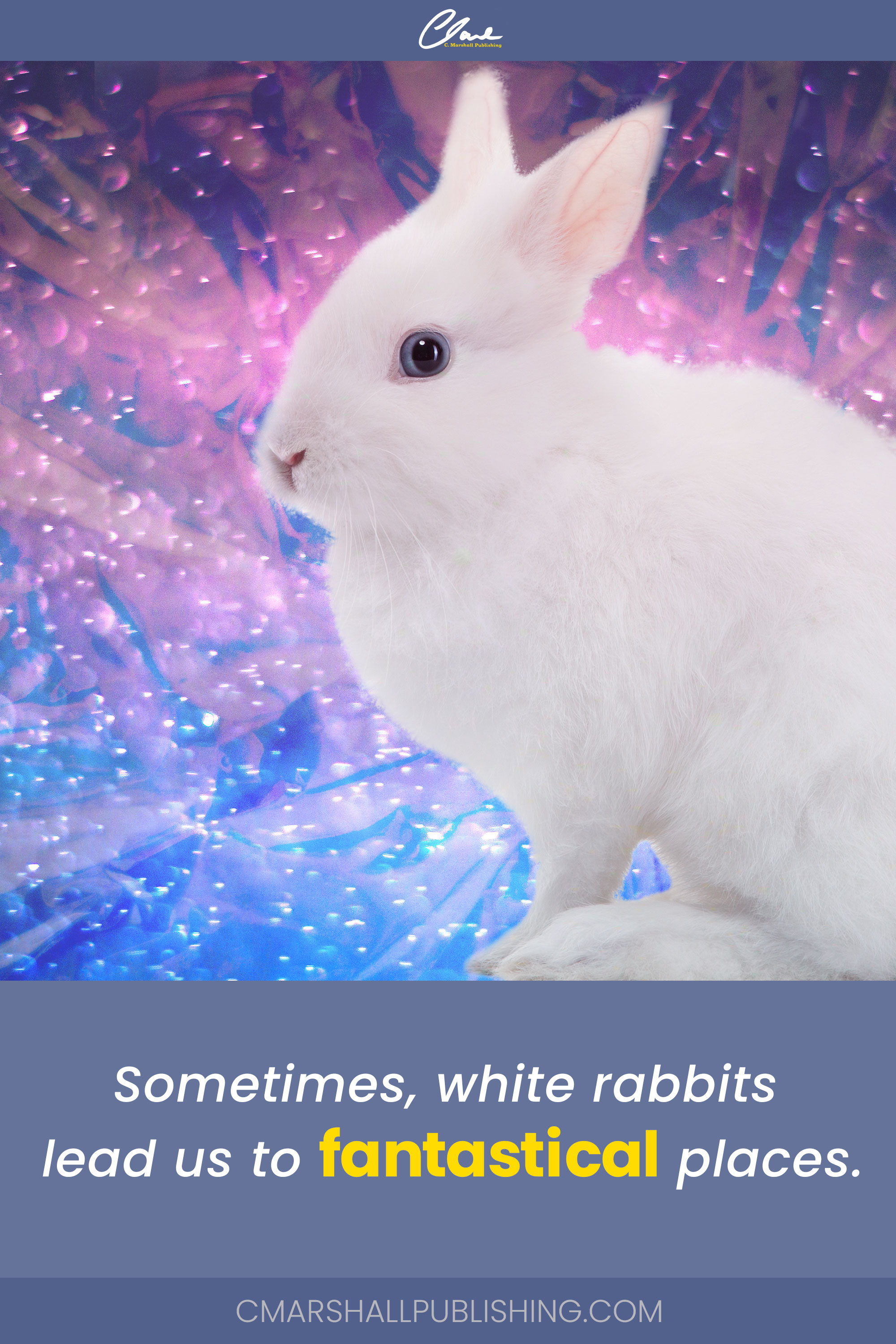
Practical tips for deciding what's important
When you're in the midst of shiny object syndrome it's hard to know what you should be working on. Here's some practical tips for dealing with that kind of overwhelm.
Set clear, SMART goals
Have you heard of the SMART goal framework? I recommend setting specific, measurable, achievable/attainable, relevant, and time-based (S.M.A.R.T.) goals for your writing or creative projects. Having a clear vision of what I want to achieve helps me stay focussed during time crunches and seasons of multiple project juggling.
Schedule your time wisely
Ugh, but Clare, I don't want to schedule my time, I only write or work on my creative projects when I FEEEEEEEEEEEEEEEL like it!
Okay, well, have fun with that.
When I say, schedule your time wisely, I don't mean you should time block every single aspect of your life.
But setting aside a consistent time of day—whether it's an hour in the evening or half an hour right when you wake up—could get you in the habit of working on that novel. Having dedicated focus time for your dream project is key to making it a reality...instead of just dreaming.
If you really want to explore an idea because you think it has potential—make time for it! Sometimes between tasks, I'll take twenty minutes to explore an idea to assess its viability. But when my twenty-minute timer goes off, it's back to work for me!
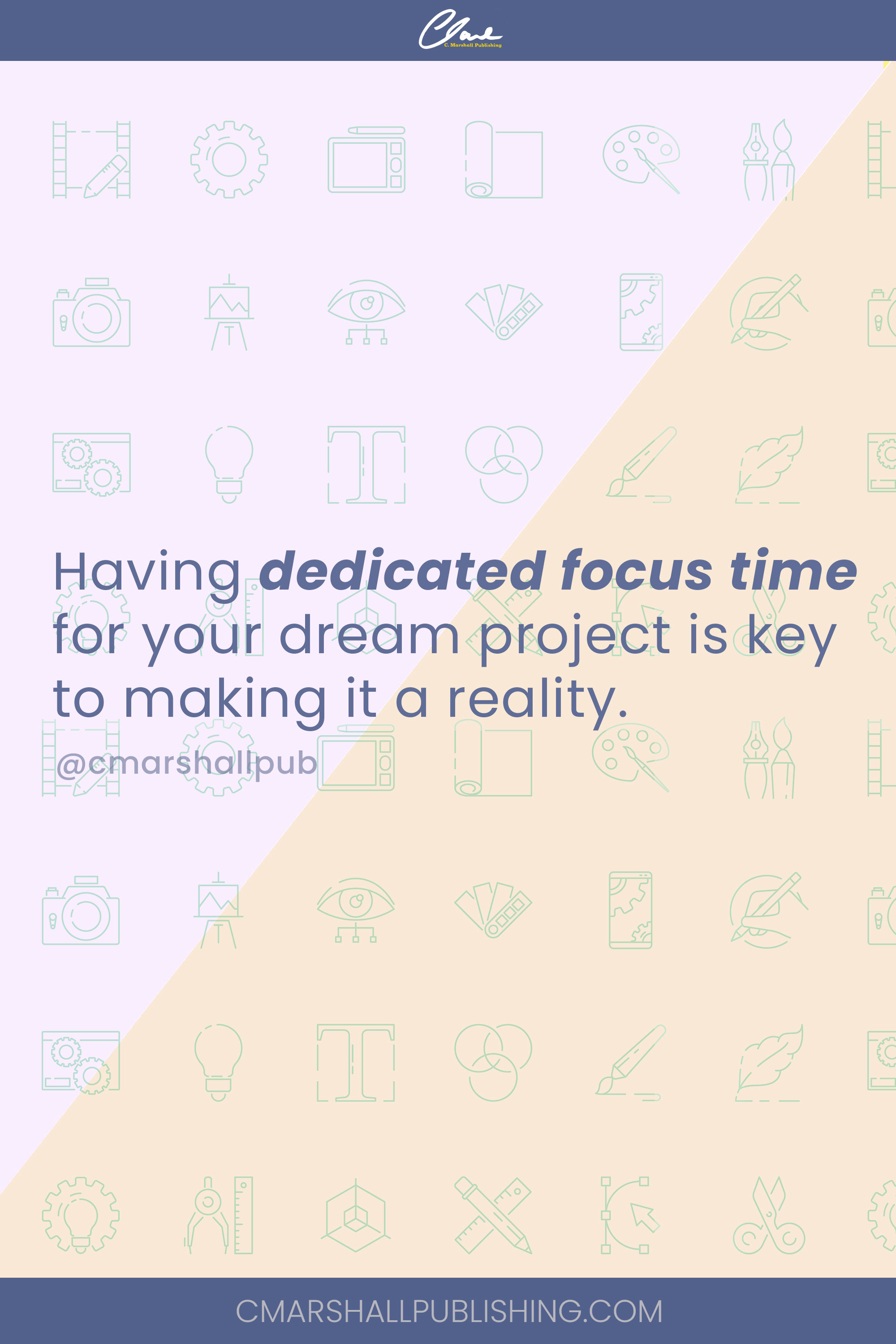
Minimize distractions like phone, email, and social media
Whatever your vice—social media, phone games, mindless scrolling—identify it and find ways to shut it down during your dedicated creative time. Consider turning off notifications or using an app that blocks or limits access to problem sites.
If a distracting idea occurs during your focus time, write it down so you can research it later.
Shiny object syndrome can be a common challenge for many writers—and other creators! By setting clear goals, knowing your priorities, scheduling your time, and developing a system to collect your ideas, you can complete your writing project.
How about you? Do you find that you jump from idea to idea, project to project? What's your best strategy for keeping yourself on-task? Let me know in the comments!
